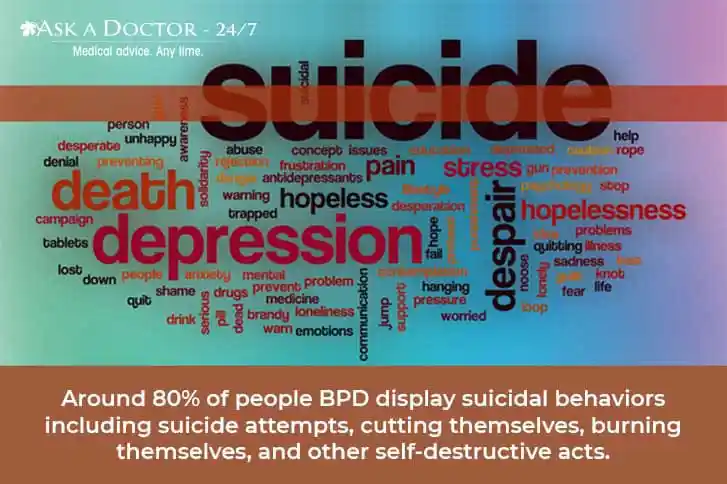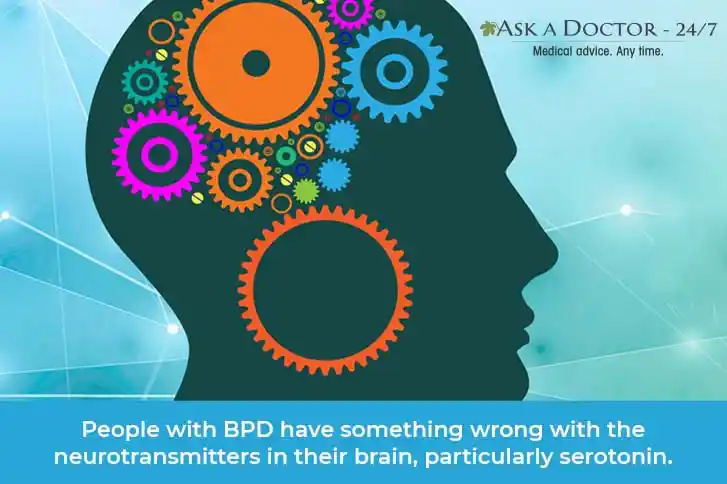Borderline Personality Disorder Affects Relationship: Here's How
Borderline Personality Disorder or BPD is a condition in which people have difficulties regulating their emotions and behavior. The disorder is marked by an ongoing pattern of varying moods, self-image, and behavior. BPD affects the way a person thinks, feels, and behaves, and thus, it is also said to take a heavy toll on the patient's ability to maintain relationships with their partners.
Give a read to understand all about bipolar disorder and its impact on relationships. Also, we help you find some ways to deal with this menace.
Identifying the symptoms of BPD

Once triggered, people with BPD can display a great sense of instability and insecurity, characterized through their wide mood swings such as intense episodes of anger, depression or feeling overwhelmed.
Some of the common symptoms observed include:
- Distorted and unstable self-image
- Feelings of isolation, boredom, and emptiness
- Difficulty in understanding others' feelings
- Unstable relationships can change considerably from intense love to idealization to intense hate.
- Agitated efforts to avoid real or imagined abandonment by friends and family.
- Impulsive behaviors such as excessive spending, unsafe sex, substance abuse, or reckless driving.
- Self-harming behavior includes suicidal threats or attempts, cutting themselves, burning themselves, etc.
- Chronic feelings of boredom or emptiness.
- Intense or uncontrollable anger – is often followed by shame and guilt.
- Stress-related paranoid thoughts
- Unstable career plans, goals, and aspirations
- Dissociative feelings, disconnecting from your thoughts or sense of identity
Why does managing relationships get so difficult for people with BPD?

The feelings about one’s family, friends, or partner can change dramatically from day to day or hour to hour. BPD patients may want closeness, but their intense and unstable emotional responses tend to estrange others – thus ending in many arguments and conflicts with loved ones. All this leads to long-term feelings of isolation. Moreover, the sense of identity keeps shifting in people with bipolar disorder, which strains relationships.
No sooner do you feel some distress, always try distracting yourself by talking to a friend or anything you like to do. Else, consult your doctor immediately.
How a patient can deal with BPD crises?

To overcome the destructive urges, people with BPD should try distracting themselves, as studies say it may help. You need something to capture your focus long enough for the negative instinct to go away. The distraction is most effective when the activity is soothing and calming to your nerves. Here are a few activities that you may try:
- Watch TV: Choose to comedy if you are feeling sad or something relaxing if you are angry or agitated.
- Get engaged in something you enjoy: You can do gardening, painting, playing an instrument, knitting, reading a book, playing a computer game, or doing a Sudoku or word puzzle.
- Distract yourself with chores and errands: You can clean your house, do yard work, go grocery shopping, groom your pet, or do the laundry.
- Stay active: If you are feeling stressed, you may want to try more relaxing activities such as yoga or a walk around your neighborhood.
- Talk to a friend: Talking to someone you trust can be a quick and highly effective way to distract yourself, and feel better.
- Practice mindfulness: Take mindful notice of your emotions, and try not to suppress them, or hold onto them. Try to stay in the moment so you do not carry the past emotions along with it.
- Breath deeply: It is one of the simplest relaxation methods. Sit or lie somewhere quiet and bring your attention to your breathing.
- Take a warm bath: Warm water bath creates a soothing effect on the neurotransmitters (serotonin) of the brain cells and thus helps to relax.
What Can You Do ‘As a Partner' to Soothe Your BPD better half?

Living with BPD, or being in a relationship with someone who has BPD, can be stressful. To have healthier and more rewarding relationships, as a partner, one should try understanding the level of emotional disorder your BPD partner experience and respond accordingly, in a way that protects both of you from additional chaos. Offer him/her emotional support by practicing patience with them during severe attacks to help them to learn and imbibe better behaviors.
Treatment-wise

It can be very difficult to accept the reality of BPD, but treatment may help. Your doctor may suggest Dialectical Behavior Therapy (DBT) and Cognitive Behavioral Therapy (CBT). Undergoing these therapies help BPD patients learn to live with the mental disharmony or disconnect. Some medicines are also prescribed to manage particular symptoms such as depression and anxiety in the short term.
Remember, the support of family and friends is critical in the treatment of BPD. If you love someone, you will have empathy to support!
For more information on BPD and other alike disorders, you can consult a Clinical Psychologist.
Ask a Specialist
Recent Questions


